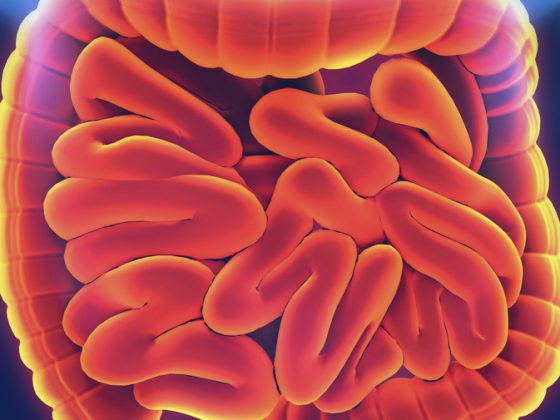As part of this year’s AAD, several speakers reported on on research-stage antipsoriatic agents, which showed promising results in phase 2 trials. Biologics and tyrosine kinase 2 inhibitors are among the drugs represented.
Back to “Atopic dermatitis and psoriasis news”.
In addition to the monoclonal antibody Risankizumab, which was approved this year, several clinical studies on the efficacy and safety of other substances are currently underway, with positive interim results.
Bimekizumab: good outcomes after 60 weeks
The results of the BE ABLE 1 and BE ABLE 2 extension studies indicate great potential of this monoclonal antibody for long-term maintenance therapy, as indicated in the presentation by Dr. Andrew Blauvelt, Oregon Medical Research Center [1]. Bimekizumab is a potent and selective neutralizer of IL-17A and IL-17F, two key proinflammatory cytokines.
In the 12-week double-blind placebo-controlled phase 2 BE ABLE study 1, bimekizumab resulted in rapid and substantial clinical improvement in moderate to severe plaque psoriasis with a safety profile comparable to previous studies of this agent [2]. Subjects were randomly assigned to experimental conditions and received bimekizumab subcutaneously at 4-week intervals at varying doses: 64 mg, 160 mg, 160 mg with dose escalation to 320 mg, 320 mg, 480 mg, or placebo. Primary endpoint was ≥90% reduction in Psoriasis Area Severity Index (PASI90) at week 12.
Jeffrey Weinberg, M.D., Icahn School of Medicine, reported phase 2b data for bimekizumab. 50-60% of the highest dose groups achieved PASI 100 at week 12 [2]. In the BE ABLE 2 extension study (n=217), bimekizumab performed well in maintaining complete or near-complete lesion clearance in psoriasis patients over a 60-week period [3]. 80 to 100% of responders (all doses) to BE ABLE 1 showed maintenance of nearly 90% symptom reduction (PASI90) (Fig. 1). These positive results are currently the longest survey period. Phase 3 comparative studies of bimekizumab in psoriasis are being conducted based on these results.

BMS-986165: dose-related PASI-75 outcomes.
Leon Kircik, M.D., Icahn School of Medicine Mount Sinai, New York, presented data from BMS-986165, a tyrosine kinase-2 inhibitor, which is classified as a Janus kinase (JAK) [4]. Tyrosine kinase-2 pathways play a mediating role for cytokines involved in the pathophysiology of psoriasis.
A double-blind phase 2 study (n=267) was conducted to evaluate the efficacy of BMS-986165 in tablet form in adults with moderate to severe psoriasis. Subjects were randomly assigned to placebo or one of the verum conditions. After 12 weeks, 75% of patients at a dose of 12 mg daily showed min. 75% reduction in PASI score (primary endpoint). In the subgroup with a dose of 6 mg twice daily, 67% achieved this target value; in that with a dose of 3 mg twice daily, 69%; and in that with 3 mg once daily, 39%. The differences from placebo were significant in each case (p<0.001).
The safety profile of JAK inhibitors has not been clearly established. Further long-term data are needed to investigate whether this class of compounds is associated with a statistically increased risk of infection and malignancy [5–7].
Source: AAD, Annual Meeting 2019, Washington (USA)
Literature:
- AAD: Annual Meeting February 28 – March 5, 2019, Washington, Dr. Andrew Blauvelt, Oregon Medical Research Center.
- Papp KA, et al: Dual neutralization of both interleukin 17A and interleukin 17F with bimekizumab in patients with psoriasis: results from BE ABLE 1, a 12-week randomized, double-blinded, placebo-controlled phase 2b trial. J Am Acad Dermatol. 2018; 79(2): 277-286.e10.
- Blauvelt A, et al: Dual Neutralisation Of Interleukin (Il)-17a And Il-17f With Bimekizumab In Moderate-To-Severe Plaque Psoriasis: 60-Week Results From A Randomised, Double-Blinded, Phase 2b Extension Study. https://ard.bmj.com/content/78/Suppl_2/1834.1
- AAD: Annual Meeting February 28 – March 5, 2019, Washington, Dr. Leon Kircik, Icahn School of Medicine Mount Sinai, New York.
- Winthrop KL: The emerging safety profile of JAK inhibitors in rheumatic disease. Nat Rev Rheumatol 2017; 13(4): 234-243.
- Verden A, Dimbil M, Kyle R, et al: Analysis of Spontaneous Postmarket Case Reports Submitted to the FDA Regarding Thromboembolic Adverse Events and JAK Inhibitors. Drug Saf 2018; 41: 357-361; 41(4): 357-361.
- Papp K, et al: Phase 2 Trial of Selective Tyrosine Kinase 2 Inhibition in Psoriasis. N Engl J Med 2018; 379: 1313-1321.
DERMATOLOGIE PRAXIS 2019; 29(5): 38 (published 10/10/19, ahead of print).











